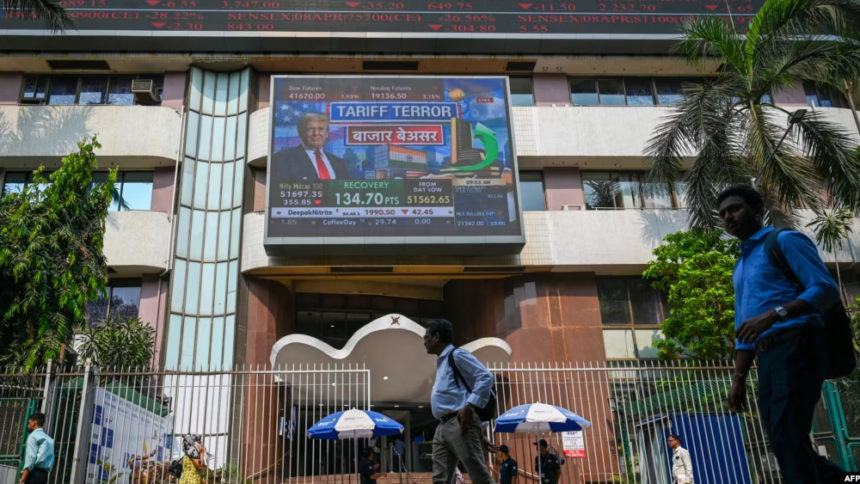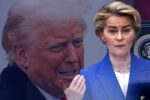U.S. President Donald Trump’s decision to impose reciprocal tariffs on all countries has triggered a global backlash, with nations expressing concerns over rising prices and some warning of retaliatory measures, reports RFE.
The United States has set a base tariff of 10% on all imports, including from Kosovo, and higher tariffs on dozens of countries with a trade surplus with the U.S.
Global Response to Trump’s Tariff Policy
The European Union reacted strongly, stating it is prepared to respond to the new U.S. tariffs.
European Commission President Ursula von der Leyen criticized Trump’s move, calling it chaotic and damaging for global trade.
“There seems to be no rules in this chaos,” she said. “Millions of consumers will face rising costs for food, medicine, and transportation. Inflation will increase.”
Von der Leyen warned that the EU is preparing countermeasures to protect its economy if negotiations with the U.S. fail. The EU has been hit with a 20% tariff, following earlier U.S. tariffs on steel, aluminum, and automobiles from the bloc.
French President Emmanuel Macron has scheduled an emergency meeting with representatives of industries affected by the tariffs.
Other Nations Condemn U.S. Tariffs
The UK, Germany, Italy, Canada, Japan, China, and Taiwan have all condemned the tariffs, warning of economic repercussions and possible retaliatory trade measures.
- China (hit with a 34% tariff) has vowed a “strong response”, calling the U.S. move a serious violation of international trade rules.
- The UK hopes to negotiate a trade agreement but warned it has “tools available” to counter the tariffs.
- Japan (24% tariff) called the decision “regrettable” and warned that it could undermine investment in the U.S.
- Italy urged the EU to seek a resolution, warning that a trade war could weaken the West.
- Taiwan (32% tariff) called the tariffs “unreasonable” and announced plans to negotiate with Washington.
Trump Declares Economic Emergency
On April 2, Trump declared a national economic emergency to enforce the tariffs, which are expected to generate hundreds of billions of dollars in revenue.
The U.S. president claims the move will bring factory jobs back to the U.S., but economists warn it could trigger a major economic slowdown due to soaring prices for cars, clothing, and essential goods.







